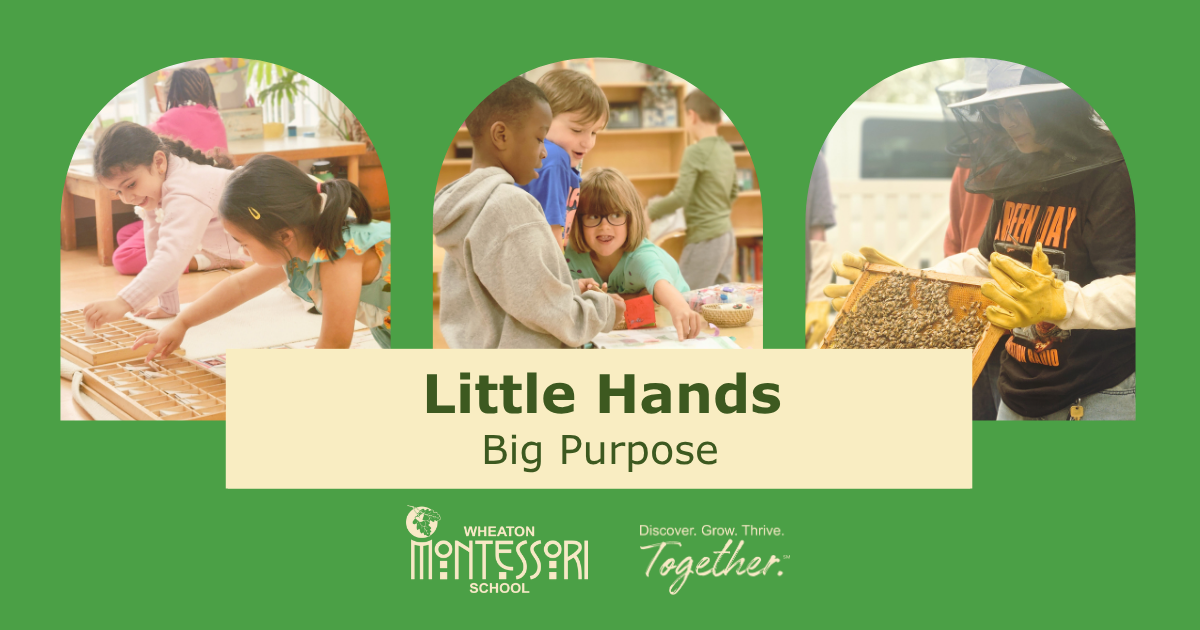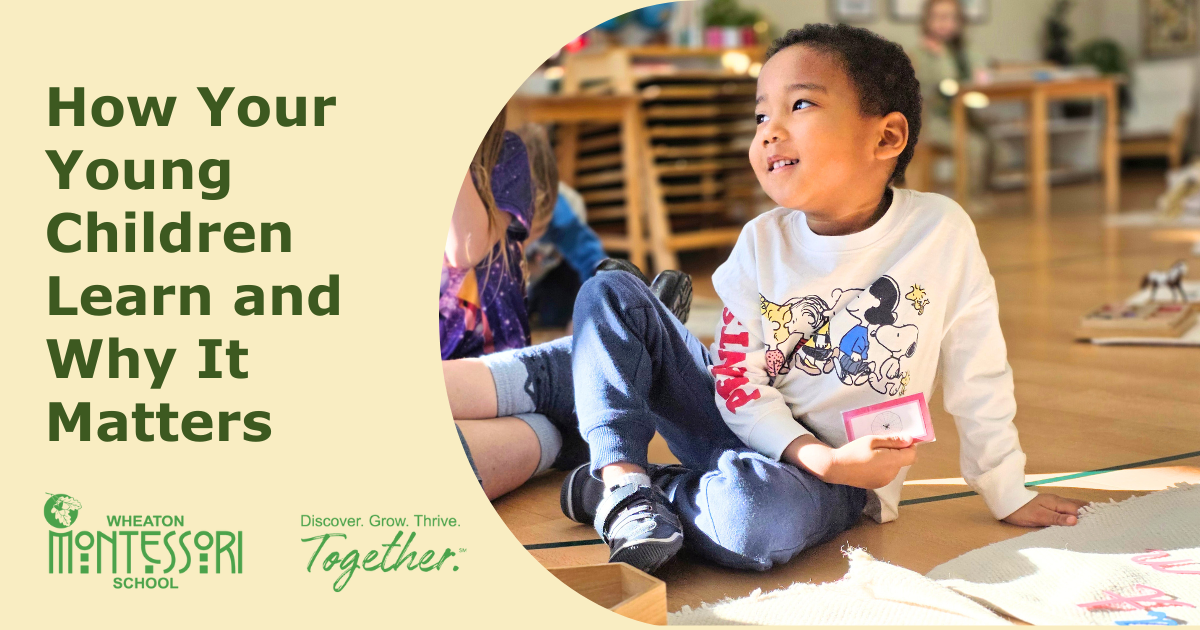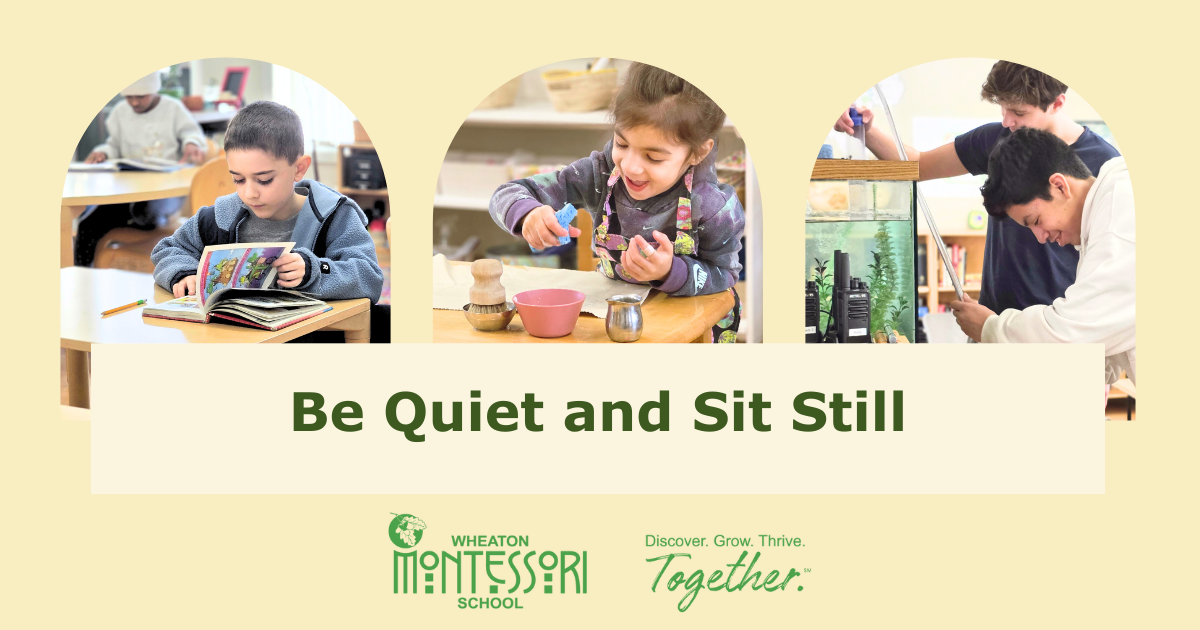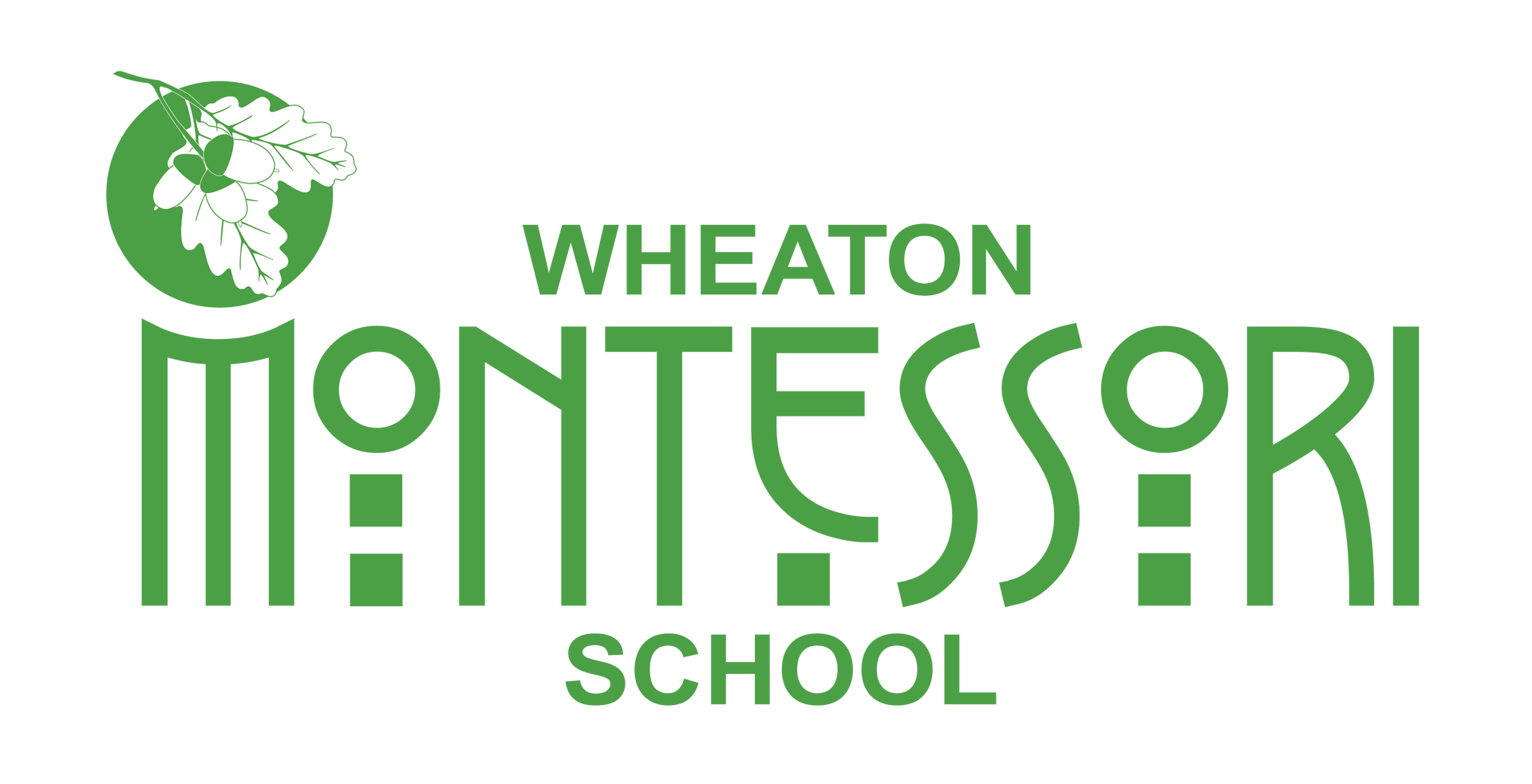
Studies have found that children who do chores have greater success as adults.
In our daily lives, we undertake numerous tasks to care for our homes, loved ones, and ourselves. As adults, we often move through these routines without much thought: washing the dishes, setting the table, tidying up a room. But for young children, these moments hold incredible fascination and are also part of the key to future success.
They yearn to participate in practical matters and delight in doing meaningful work alongside the adults they admire.
In Wheaton Montessori School’s classroom communities, we refer to these tasks as Practical Life. At school, toilet training, cleaning up paints, and prepping meals are activities that help children connect to the world around them. They offer a gentle introduction to expectations and everyday responsibilities while also supporting the development of internal motivation, intellect, coordination, and concentration.
Two Purposes: One External, One Internal
Every Practical Life activity serves two important purposes. The first is external and easily visible: when children wash a table, the table becomes clean. The second purpose is internal and perhaps even more meaningful: children grow in confidence, independence, and a sense of belonging.
When children and young adults are invited to participate in purposeful work, they feel like important contributors to their classroom community. Learning to meet their own needs helps them develop a sense of competence and pride. Over time, these small but significant experiences lay the foundation for future independence and responsibility. Our alumni become active citizens who are well-prepared to care for themselves and are informed problem-solvers planning for their future as confident, well-adjusted, happy adults who can contribute meaningfully to the world around them.
The Joy of Purposeful Work
As your children learn to care for themselves, the home and yard, and pets, they come to understand what is essential. They begin to internalize procedures, take pride in doing things “all by myself,” and discover just how capable they are.
Children naturally direct their attention toward meaningful work. They experience deep satisfaction not only in the outcome but in the process itself. Through Practical Life activities, they develop a strong sense of belonging and the confidence to grow into their fullest, most independent selves.
We invite you to visit our school to witness this for yourself!
Preschool enrollment is currently open, providing opportunities for eligible early childhood students to join our exciting summer camps, running through August 15th, as well as for the upcoming 2025-2026 school year. Act quickly, as we have limited spots available for new children aged 4 ½ and under!
Prospective families with toddlers and children under 4 ½ are encouraged to sign up for a school tour to explore the advantages of our Primary Program, which lays the essential foundation for our Elementary and Adolescent Community Programs*. Prospective families who are enrolled in the 2025-2026 School Year are welcome to sign up for Wheaton Montessori School summer camps.
Current families and 2025 alumni students are eligible for summer camps.
* Individual school tours for kindergarten through 9th grade are not available, and the waitlist remains closed for the 2025-2026 School Year. The only exception is considered for students transferring from AMI-accredited Montessori schools that have maintained continuous attendance.


